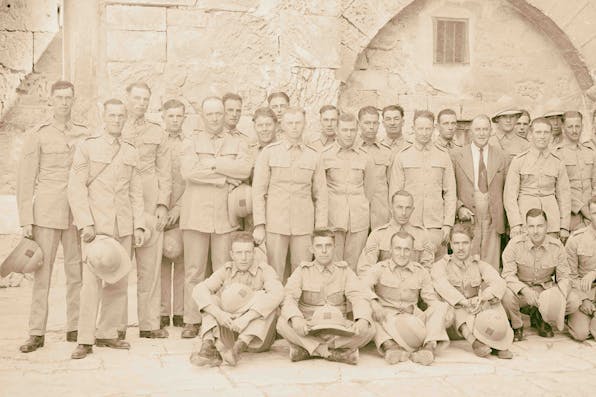
July 22, 2019
The Lessons of Previous Misadventures in “International Control”
Who remembers the Free State of Danzig?
In “The Mirage of an International Jerusalem,” Michel Gurfinkiel brings to light—more vividly than in any other account I have seen—the long-forgotten connection between contemporary disputes over Jerusalem and the diplomatic fantasies of the late 1940s. I totally agree with his conclusion that there is no serious legal argument against foreign nations recognizing Jerusalem as Israel’s capital, just as the United States did in 2017. In this respect at least, we should be glad that President Trump is not much concerned with diplomatic niceties.
I am much more skeptical, however, of Gurfinkiel’s suggestion that if the history of this dispute were better understood, objections to Israeli control over a united Jerusalem would dwindle to harmless mutterings. Edmund Burke warned the revolutionists in France that overthrowing the ancien régime would not end injustice and oppression: “wickedness is a little more inventive.” Those who offer escapist plans for Middle East peace are also more inventive than Gurfinkiel seems to acknowledge.
With that in mind, I want to emphasize here how fantastical it was, even in the late 1940s, to imagine that peace could be established in the former territory of Mandate Palestine by placing Jerusalem—or a greater Jerusalem entity—under “international control.” As it happens, the world already had bitter experience of such schemes. They had quickly become too embarrassing for the “international community” to remember, but they remain object lessons for today.
Responses to July ’s Essay

July 2019
The Many Incoherences and Hypocrisies of International Law on Jerusalem
By Eugene Kontorovich
July 2019
The Lessons of Previous Misadventures in “International Control”
By Jeremy Rabkin
July 2019
Don’t Entrust Jerusalem to the Muslims or the Jews (or the French)
By Douglas J. Feith
July 2019
Jerusalem Is and Always Will Be Treated as a “Special” Case
By Michel Gurfinkiel